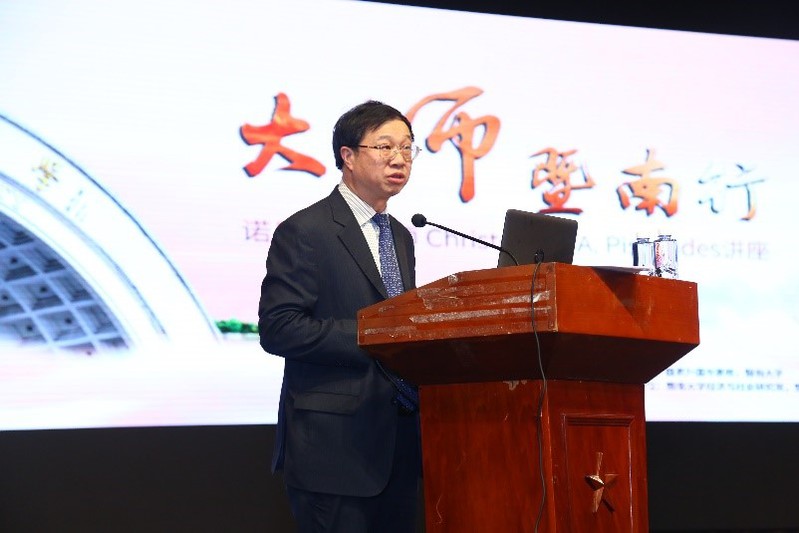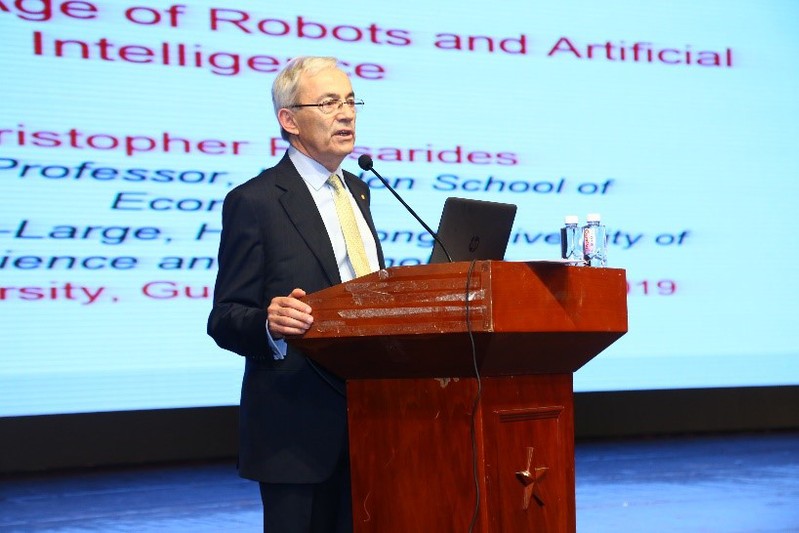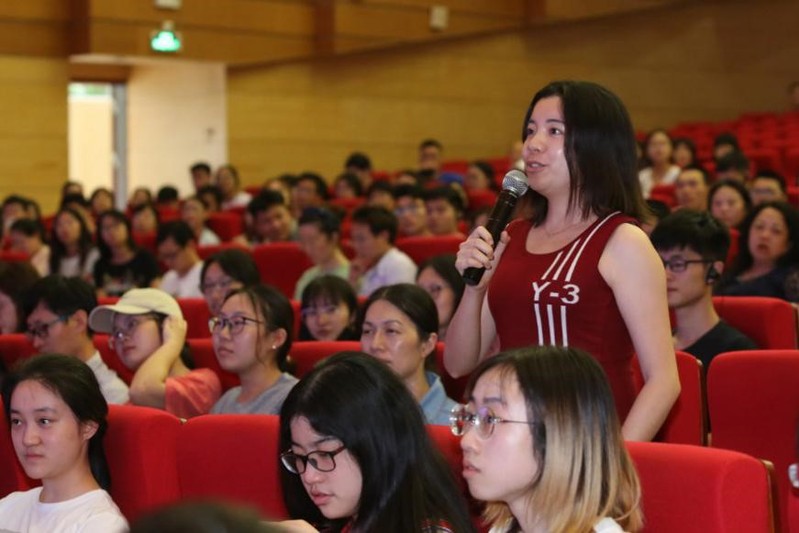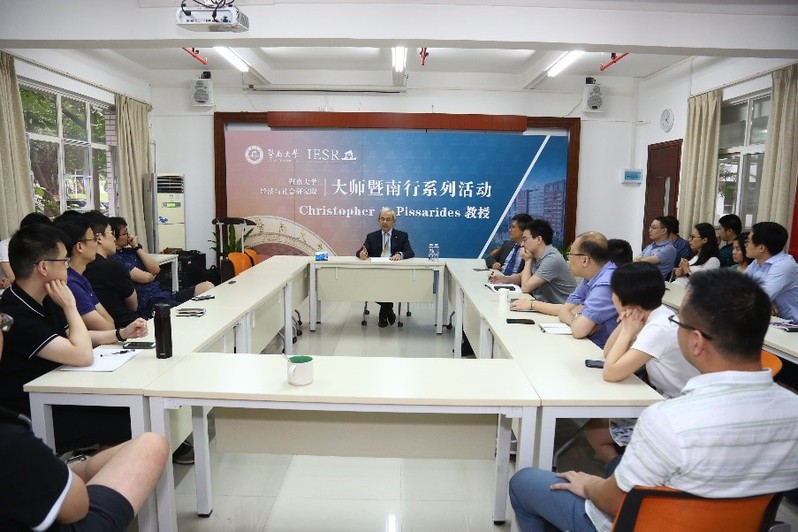- ABOUT JNU
- ADMISSION
-
ACADEMICS
- Schools and Colleges
-
Departments and Programs
- Arts College of
- Chinese Language and Culture College of
- Economics College of
- Electrical and Information Engineering College of
- Foreign Studies College of
- Information Science and Technology College of
- Environment School of
- Humanities School of
- International Business School
- International Studies School of
- Journalism and Communication College of
- Law School
- Liberal Arts College of
- Life Science and Technology College of
- Management School of
- Marxism School of
- Medicine School of
- Pharmacy College of
- Physical Education School of
- Science and Engineering College of
- Shenzhen Tourism College
- Research Institute
- Research Center
- Programs in English
- Majors
- Study Abroad
- Online Learning
- RESEARCH
- CAMPUS LIFE
- JOIN US
Latest News
Nobel Prize Winner lectures at JNU
Date: May 22th, 2019
Source: Institute for Economic and Social Research
Christopher A. Possarides, co-winner of the 2010 Nobel Prize in Economic Science and a professor at the London School of Economics, delivered a keynote speech, Work in the Age of Robots and Artificial Intelligence, in the Great Scholars in JNU lecture series on May 21.
President Song Xianzhong said it was a great honor to have Pissarides visit JNU and he believed faculty members and students would benefit from the lecture, thus giving full play to economics in JNU's academic research and policies.

(President Song speaking)
In the keynote address Pissarides described a new technology, robot and artificial intelligence, and elaborated on how it integrated into various fields and influenced the labor market.

(Pissarides delivering his speech)
He said robots and artificial intelligence have been used in a broad range of ways in Europe and other developed countries. However, he said, China still has room to develop further in this area. Research shows that robots have taken up 40 to 50 percent of the labor force in Amazon and Alibaba. In manufacturing, robots are most frequently used in the automobile industry. Taking Japan as an example, Pissarides said there are about 1,400 robots for every 10,000 employees. Realizing the government's Made in China 2025 guidelines entails a further improved research-and-development ratio and industry-university-research collaboration.
The biggest impact of the new technology on the labor market, he said, is structural transformation, including the creation of new jobs and the elimination of outdated ones. The challenge is how to transform employment. Pissarides predicted that in the future people will work fewer hours and more easily as productivity increases, while such industries as household service, luxury, health care and training will expand. In his view, the Chinese people will surely live richer and happier lives as long as the government invests more in education and helps create more jobs
After speaking, Pissarides answered several students' questions in detail.

(A student asking questions)
After the lecture, he met with faculty members of the Institute of Economic and Social Research.

(Pissarides meeting with faculty members)
NEWS
- About the University
- Quick Links
Copyright © 2016 Jinan University. All Rights Reserved.




